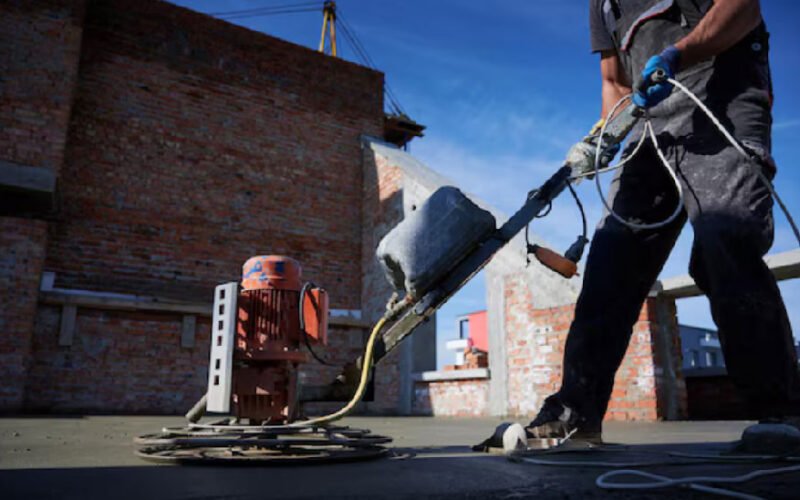The DIY trend has taken the world by storm, with homeowners tackling everything from painting to plumbing. When it comes to concrete repair, many folks are tempted to roll up their sleeves and give it a shot. After all, who doesn’t love saving a few bucks and feeling handy?
In this article, we’ll explore why DIY concrete repair might not be the money-saver you think it is. We’ll break down five key reasons why going the DIY route can actually cost you more in the long run.
KEY TAKEAWAYS
- DIY concrete repair often lacks proper tools, leading to subpar results.
- Insufficient knowledge can result in misdiagnosis and ineffective repairs.
- Quick fixes may mask deeper issues, causing recurring problems.
- Professional repairs protect warranties and insurance coverage for long-term savings.
Lack of Proper Tools and Materials
Ever tried to fix a car with a butter knife? That’s kind of what DIY concrete repair can feel like without the right tools. Professional concrete repair requires specialized equipment that most homeowners don’t have lying around. We’re talking about things like concrete grinders, power trowels, and industrial-grade mixers.
On top of that, using the wrong materials can spell disaster. Different types of concrete damage need specific repair products. If you use the wrong stuff, you might as well be putting a Band-Aid on a broken leg.
Sure, you can buy or rent some of this equipment, but that’ll eat into your budget fast. And let’s be real – how often are you going to use a power trowel after this one project?
Insufficient Knowledge and Experience
Repairing concrete isn’t just about slapping some cement on a crack and calling it a day. It’s a bit like being a doctor for your driveway. You need to diagnose the problem correctly before you can treat it. Without the right know-how, you might miss underlying issues that are causing the damage in the first place.
Misdiagnosing the problem can lead to ineffective repairs or even make things worse. It’s like treating a headache when you’ve actually got a toothache – you’re not fixing the real issue.
Professional concrete repair experts have seen it all. They can spot problems you might miss and know exactly how to fix them. Their experience can save you from costly mistakes and ensure the repair lasts.
Temporary Fixes Instead of Permanent Solutions
Without addressing these root causes, you’re just putting a fresh coat of paint on a rotting fence. These quick fixes might look good for a while, but they won’t stand the test of time. You’ll find yourself doing the same repair over and over again.
Each time, you’re spending money on materials and wasting your weekends. In the long run, you could end up spending more on these band-aid solutions than you would have on a professional repair that fixes the problem for good.
Potential for Further Damage
Here’s a scary thought – your DIY repair could actually make things worse. If you don’t know what you’re doing, you might end up compromising the integrity of the surrounding concrete. It’s like pulling on a loose thread – suddenly, you’ve got a bigger problem than when you started.
Poor repairs can lead to a domino effect of damage. What started as a small crack could turn into a major structural issue. And let’s not forget about safety.
A poorly repaired concrete step or driveway could become a tripping hazard. The cost of fixing additional damage or, worse, dealing with an injury, far outweighs the initial savings of DIY repair.
Voiding Warranties and Insurance Coverage
Did you know that DIY repairs could mess with your warranties and insurance? Many concrete structures come with warranties, but these often become void if repairs aren’t done by professionals. It’s like trying to fix your phone yourself – goodbye, Apple warranty!
Insurance companies can be just as picky. If they find out your DIY repair led to more damage or an accident, they might not cover it. You could be left holding the bag for some serious expenses.
Professional repairs, on the other hand, often come with their own warranties. Plus, they keep your existing coverage intact. It’s like having a safety net for your concrete and your wallet.
Closing Thoughts
So, there you have it – five solid reasons why DIY concrete repair might cost you more in the long run. While the urge to save money and tackle projects yourself is admirable, some jobs are best left to the pros.
When it comes to repairing concrete, investing in professional services can save you time, money, and headaches down the road. Remember, sometimes the smartest DIY decision is knowing when not to DIY!
*Sponsored Blog Post







